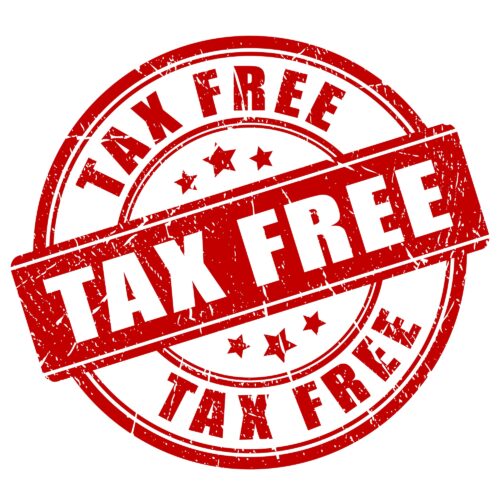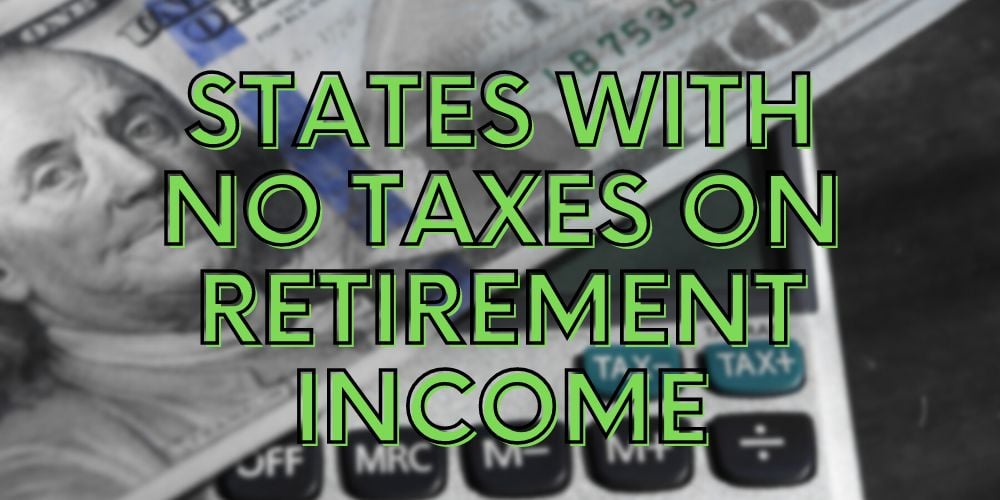Have you ever wondered if any states in the US have no taxes on retirement income? Believe it or not, there are a few. Keep reading to learn more about these states and our tips for a comfortable retirement.
Retirement Income Tax
The majority of retirement income may be taxable under federal law.
Social Security income, pension payments, and payouts from IRA and 401(k) plans are all included in this.
But the distributions from Roth IRA and Roth 401(k) plans are exempted. The federal government collects this tax, which varies by plan type and income amount.
The federal government collects this tax, which varies by plan type and income amount.
Some provinces also have their own local taxes that are collected in addition to the federal tax.
Because retirement income taxes differ depending on the type of plan and the amount of income received, it’s best to understand how your plans could be taxed.
Related: Looking To Retire? These 6 Stocks Can Help Generate Regular Income
States with No Taxes on Retirement Income
States with no taxes on retirement income greatly benefit retirees and those nearing retirement.
Many of these states have a low cost of living, warm climates, vibrant communities, and beautiful natural surroundings.
There are 11 states that don’t tax retirement income, including:
- Florida
- Nevada
- Tennessee
- Alaska
- South Dakota
- Wyoming
- Washington
- Texas
- Illinois
- Mississippi
- Pennsylvania
 Eight of these states have no state income tax except for Illinois, Mississippi, and Pennsylvania.
Eight of these states have no state income tax except for Illinois, Mississippi, and Pennsylvania.
In general, these states offer favorable tax treatment for retirees because they do not tax income from retirement accounts such as 401(k)s and IRAs or any income from different sources.
New Hampshire is another state that does not apply federal taxes on pension payments, retirement account withdrawals, or wage and salary income.
However, dividends and interest, which could be sources of income for certain retirees with assets outside retirement accounts, are subject to tax in New Hampshire.
How Can You Prepare for Retirement?
If you’re nearing retirement age and wondering how to prepare for it, there are several steps you can take to ensure that your retirement years are comfortable and happy.
Saving for retirement should ideally begin at least a decade before you actually retire.
However, if you start planning for your retirement when you’re younger, you can take advantage of compound interest to help your savings grow over time.
To maximize earnings, it’s important to invest your retirement funds wisely.
Some people choose to put their savings into an IRA or a 401(k), both of which offer tax advantages for those who use them effectively.
 Other options include putting money into stocks or bonds or investing in real estate trusts (REITs).
Other options include putting money into stocks or bonds or investing in real estate trusts (REITs).
Ultimately, the best way to save for retirement will depend on your financial situation and the amount of risk you feel comfortable taking.
In addition to savings and investments, there are many different potential sources of income that older adults can use during retirement.
This might include pensions from an employer, rental income from real estate, or even regular income from a part-time job.
Once you know what sources of income will be available to you during retirement, it’s easier to develop a realistic budget for how much money you can spend each month.
You may need to make some changes to your current lifestyle by cutting expenses or finding ways to reduce costs – especially if the amount of money coming in is less than what you need each month.
Aside from financial aspects, some things to consider include the following:
- Starting new hobbies and interests
- Staying healthy by exercising regularly and eating well
- Taking advantage of social activities in your community
- Planning for special needs such as elder care if needed
How Much Should You Save for Retirement?
According to the basic rule of thumb, about 15% of your gross annual earnings should be saved each year to have a comfortable retirement.
There are many different factors that will affect how much you need to save for retirement. For example, the longer you plan on working, the less you’ll need to save overall.
 If you want to ensure that your standard of living does not decrease too dramatically during retirement, then it may be a good idea to aim higher than 15%.
If you want to ensure that your standard of living does not decrease too dramatically during retirement, then it may be a good idea to aim higher than 15%.
However, as with anything else, saving money for retirement is about striking a balance between what is realistic and what is ideal.
Final Thoughts
Overall, there are states that do not tax your retirement income, as listed earlier in this article.
It is never too late to start saving for your retirement, but the sooner you start, the better off you will be.
Try to save at least 15% of your gross annual earnings so that you can retire comfortably and without worry.
If you take these steps, you can enjoy a worry-free retirement in a beautiful location with no taxes on your hard-earned income.
You might also like:


 Tags:
Tags:










